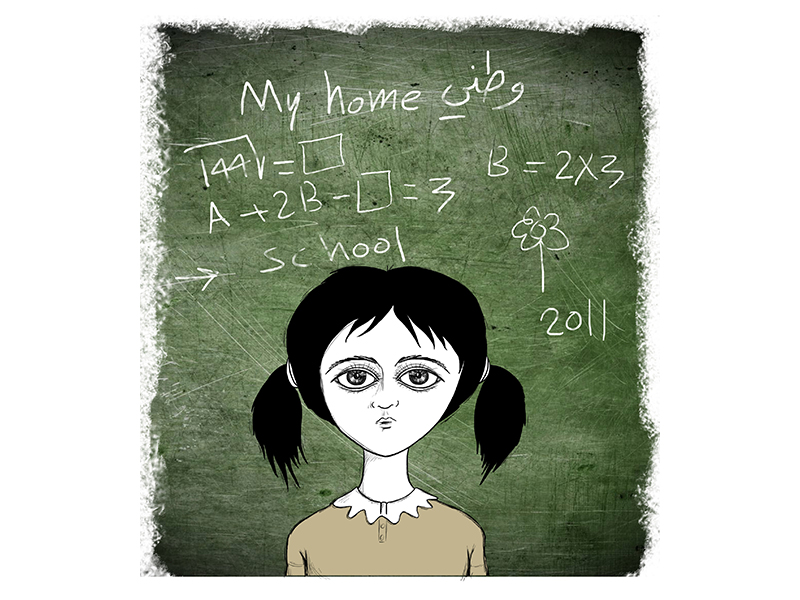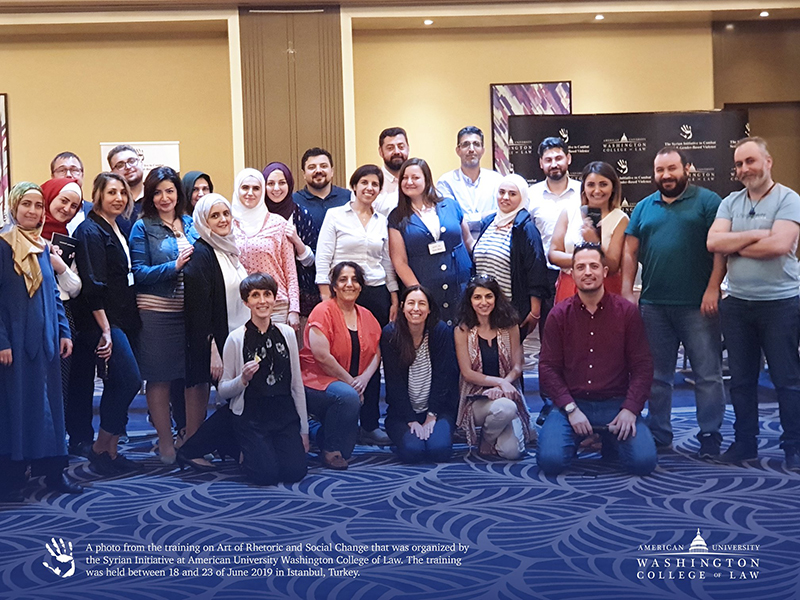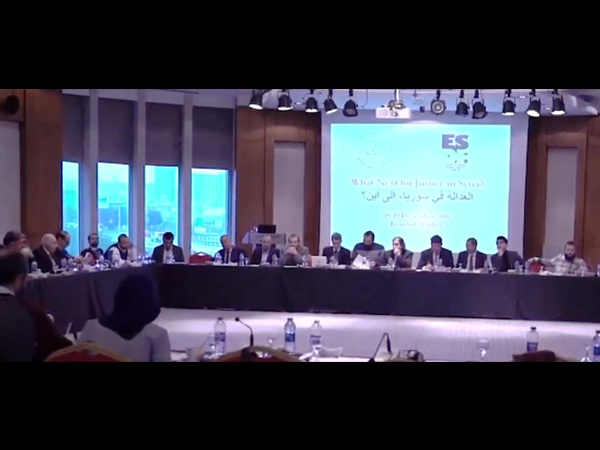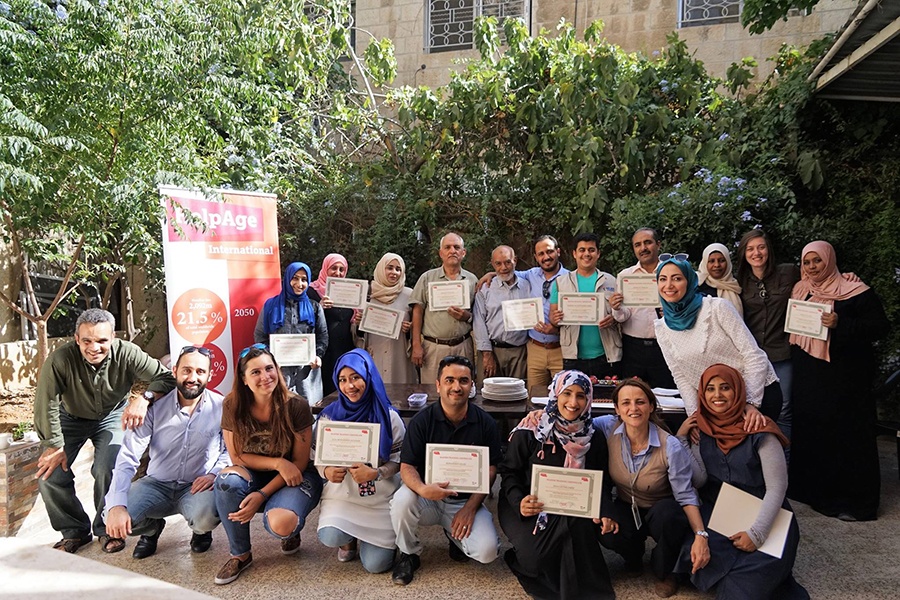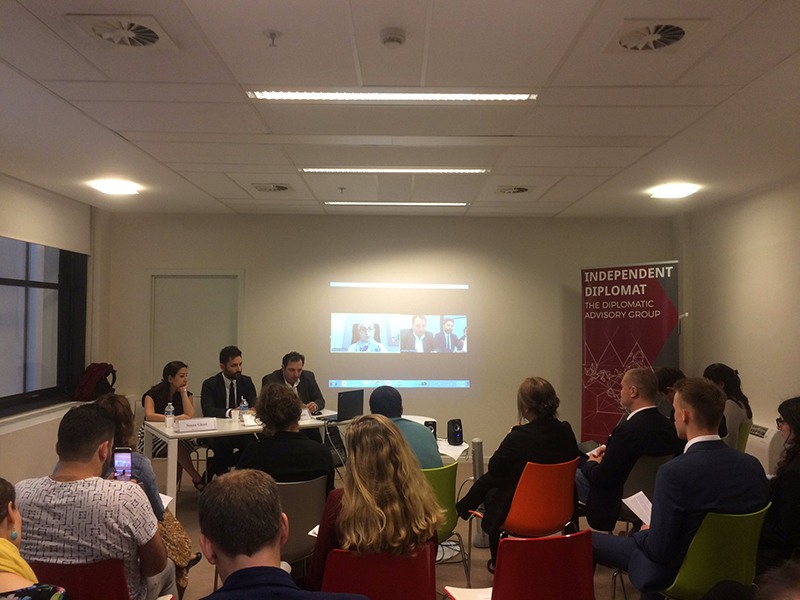The Asfari Institute for Civil Society and Citizenship and the International Center for Transitional Justice are pleased to invite you to the launch of the Save Syrian Schools report:
“’We Didn’t Think it Would Hit Us:’ Understanding the Impact of Attacks on Schools in Syria.”
The Save Syrian Schools project brings together 10 Syrian civil society organizations and ICTJ to demand justice for attacks on schools and an end to the killing of children in Syria. The report looks closely at the legal implications of school attacks and shines a light on the everyday impact they have had on the lives of students, teachers, families, and Syrian society.


Executive Summary
“Everything changed.” Such are the words of a young Syrian student speaking about the aftermath of an attack on his school that took the lives of his brother and friends and forever changed his. He now works in a tailor’s office because he could no longer bear going to school, carrying with him the memories of that day and the loved ones he lost. His story is just one among countless others of lives irrevocably changed as the result of attacks on schools and the loss, not only of loved ones, but of childhood, innocence, and opportunity. Worse, it is not just individual lives that have been changed. The widespread attacks on schools during the country’s brutal conflict have torn apart families, left behind shells of formerly vibrant communities, and altered the future of Syrian society.
The report, “‘We Didn’t Think It Would Hit Us:’ Understanding the Impact of Attacks on Schools in Syria,” examines attacks on schools from multiple angles: from the legal implications of such attacks to the everyday impact on the lives of students, teachers, families, and society at large. The findings leave no doubt that the impacts are as numerous as they are vast and, at best, will take decades to meaningfully address. Of course, such a process cannot even really begin until the ongoing onslaught of violence against Syrian civilians stops and real action is taken to reverse the country’s rapid spiral from repression to peaceful protest to brutal armed conflict in response to these protests.
The report has been years in the making, and the process of writing it is in itself notable. It began when 11 organizations—10 Syrian and one international—came together in search of a way to combat the growing fatigue beginning to afflict Syrian activists, as a result of documenting increasingly abhorrent and unending violations of human rights and against a backdrop unfulfilled promises of action and accountability. At the start of the conflict, these activists and other civil society actors coalesced quickly, creating transitional justice proposals and post-conflict road maps. They documented violations based on the belief that the conflict would end quickly and those responsible for human rights violations would be brought to justice swiftly. Of course, what has happened instead is that the conflict has only intensified with each passing year, becoming increasingly complex as more and more actors are introduced, many from outside Syria.
Fatigued yet undeterred, after a series of dialogues and careful consultations with a wide set of civil society stakeholders, the 11 coauthoring organizations came together to work on a joint project—dubbed the Save Syrian Schools project—that would combine and amplify the different organizational strengths represented within the group. These capacities range from storytelling and advocacy, to large and highly credible networks of on-the-ground documenters and valuable archives of information. The result is a body of work that shines desperately needed light on the voices of Syrians affected in diverse ways by attacks on schools and calls attention to the glaring breaches of human rights that have occurred with regard to these acts of destruction. The driving force behind the year and a half of dedicated work is the desire to, first, end the violence and, second, ensure that the resulting harms are fully understood so that national and international actors alike are left with no choice but to address them through a nuanced and well-informed process of justice, acknowledgment, redress, and reform.
The findings of the report are informed by several sources: the databases and archives of group members detailing individual attacks on schools and providing information on methods of attack, location, school names, casualty numbers, likely perpetrators, and so on; careful desk research with priority given to the research, publications, and other resources produced by partner organizations; and in-person field interviews and focus groups with students, teachers, school staff, parents, and local officials from communities affected by school attacks.
 Loading...
Loading...
For more information about the Save Syrian Schools project, please visit the website:
